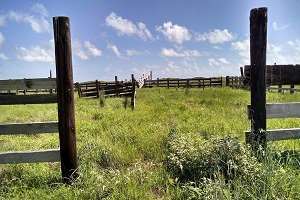Colorado farm and ranch income has hit its lowest level in 30 years, according University of Colorado Boulder research.

As Colorado Public Radio reports, much of agriculture is suffering in Colorado, which like other parts of the High Plains region is facing low corn, wheat and cattle prices.
Two years ago, cattle ranchers did the rational thing when prices increased, they built up their herds and expanded their operations. Todd Inglee, a rancher in Evergreen, Colorado and president of the Colorado Cattlemen’s Association and chairman of the Colorado Beef Council, told CPR that he and many others are now faced with low prices because of oversupply.
“I know a lot of guys, who’ve said ‘I’ve held these cattle back as long as I can, I gotta move ‘em. One, I’m out of hay, or I don’t have enough money to keep feeding ‘em so I just gotta get ‘em sold,’” Inglee said.
Unlike corn, ranchers can’t store cattle until prices get better.
John Campbell, who runs the winter livestock auction in La Junta, Colorado told CPR that the recent highs and now lows have been like a rollercoaster, something that long-time ranchers are accustomed to and plan for.
He said it’s most difficult for people who only recently have attempted to break into the ranching industry.
“We have a number of our customers, younger generation that tied into some awfully, awfully high-priced land, high-priced feed and high-priced cows, and they’re having a hard time now,” Campbell said.
Cattle prices aren’t expected to rebound this year, as a strong dollar will continue to hurt international exports of beef. Campbell told CPR that a strong dollar means it’s cheaper for U.S. meat packers to import beef from Mexico and Brazil, which takes business from local producers.
At a time when farmland and labor costs keep rising, which doesn’t make lower revenue years any easier to bear, said Dawn Thilmany, an ag economist at Colorado State University.
She told CPR that several years ago, some ranchers and farmers were helped by oil and gas royalties, for drilling on their property, but with oil prices also low, those royalty checks aren’t what they once were.
Click here to see more...